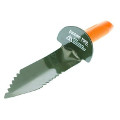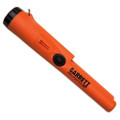Delaware's extensive history is often glossed over. Many people don't realize that the area was home to several Native American tribes for hundreds of years before European settlers ever arrived. From there, it was passed between colonists, all of whom left their own unique mark upon the region. The state also proved an important site during the Revolutionary War and the Civil War.
Despite its colorful past, many metal detector hobbyists avoid visiting Delaware. Even seasoned treasure hunters shun the state. While it's true that metal detecting can be tricky in Delaware, it isn't impossible. If you know where to focus your search, then you have a chance of finding relics from the periods mentioned above.
In this article, we'll be looking at the areas of Delaware that have produced interesting finds in the past. We'll also give you a detailed breakdown of the laws that govern metal detecting in the The First State.
Laws
Metal detecting in Delaware is regulated by the Archeological Resources Protection Act. The ARPA is a federal law regulating metal detecting all across America. Its aim is to preserve items of historical and cultural significance. This law prohibits the removal of man-made objects more than 100 years of age from public ground.
The ARPA does not apply to metal detecting done on private property. Anyone planning to use their metal detector on private property should obtain the written permission of the landowner beforehand.
Local Rules and Regulations
Delaware doesn't have a lot of laws regulating metal detecting in the state. This is definitely advantageous for treasure hunters. However, there are a few restrictions that you should be mindful of.
Metal detecting on historical sites is largely forbidden in Delaware. In some cases, you may be able to secure permission to metal detect on a historical site if you contact its governing body directly. The same goes for national parks.
State parks can be a little more complicated. Some will allow you to metal detect with no restrictions, while others will require you to obtain a permit beforehand. In some cases, a state park may forbid metal detecting entirely. Thankfully, this is rare. As long as you contact the appropriate authorities and act respectfuly, then you'll probably receive the permission that you seek.
Best Metal Detecting Equipment
| Product | ||
|---|---|---|
| Metal Detector |  |
|
| Edge Digger |  |
|
| Pin-Pointer |  |
|
| Knee Pads |  |
Best Spots
The spots listed below will give you the best chances for success.
Ghost Towns
Ghost towns are popular among urban explorers. They also hold major allure for treasure hunters. In the typical American ghost town, you can possibly uncover mining equipment, kitchen utensils, and more with a metal detector.
Delaware is home to several different ghost towns, all of which offer ample treasure hunting possibilities. In particular, we recommend the abandoned towns of New Market and Saint Johnstown.
New Market was built hundreds of years ago, with its church as its center. Over time, the town's residents moved on to better opportunities elsewhere. While none of New Market's structures remain standing, evidence of its existence is regularly unearthed from its soil.
Saint Johnstown was established as a small railroad town. It catered primarily to Queen Anne's Railroad. When that railroad ceased operations, the town followed suit. Today, metal detector hobbyists can expect to find abandoned railroad tools scattered across the abandoned town.
State Parks

Delaware's state parks are among the most beautiful in America. They can also be some of the most productive for a treasure hunter. Many of Delaware's state parks contain popular hiking trails. These are great spots for metal detecting. The typical trail can turn up arrowheads, old coins, and jewelry. In most cases, this jewelry comes from recent visitors and therefore the jewelry should be handed over to the park's Lost and Found program.
There is no shortage of Delaware state parks to choose from. Here are the parks that we recommend:
- Delaware Seashore State Park
- Fenwick Island State Park
- Bellevue State Park
Remember to contact park authorities before visiting any of these locations. They'll be able to advise you regarding the legality of metal detecting on the grounds. Failure to obtain permission before metal detecting in one of these parks could land you in trouble.
Conclusion
Delaware may be a small state, but plenty of treasure lies throughout its towns and cities. All it takes to find it is some quality equipment and some determination. The state also has the advantage of bordering more popular metal detecting states. With Delaware as your base, you can also try metal detecting in Maryland, metal detecting in New Jersey, and metal detecting in Pennsylvania.
